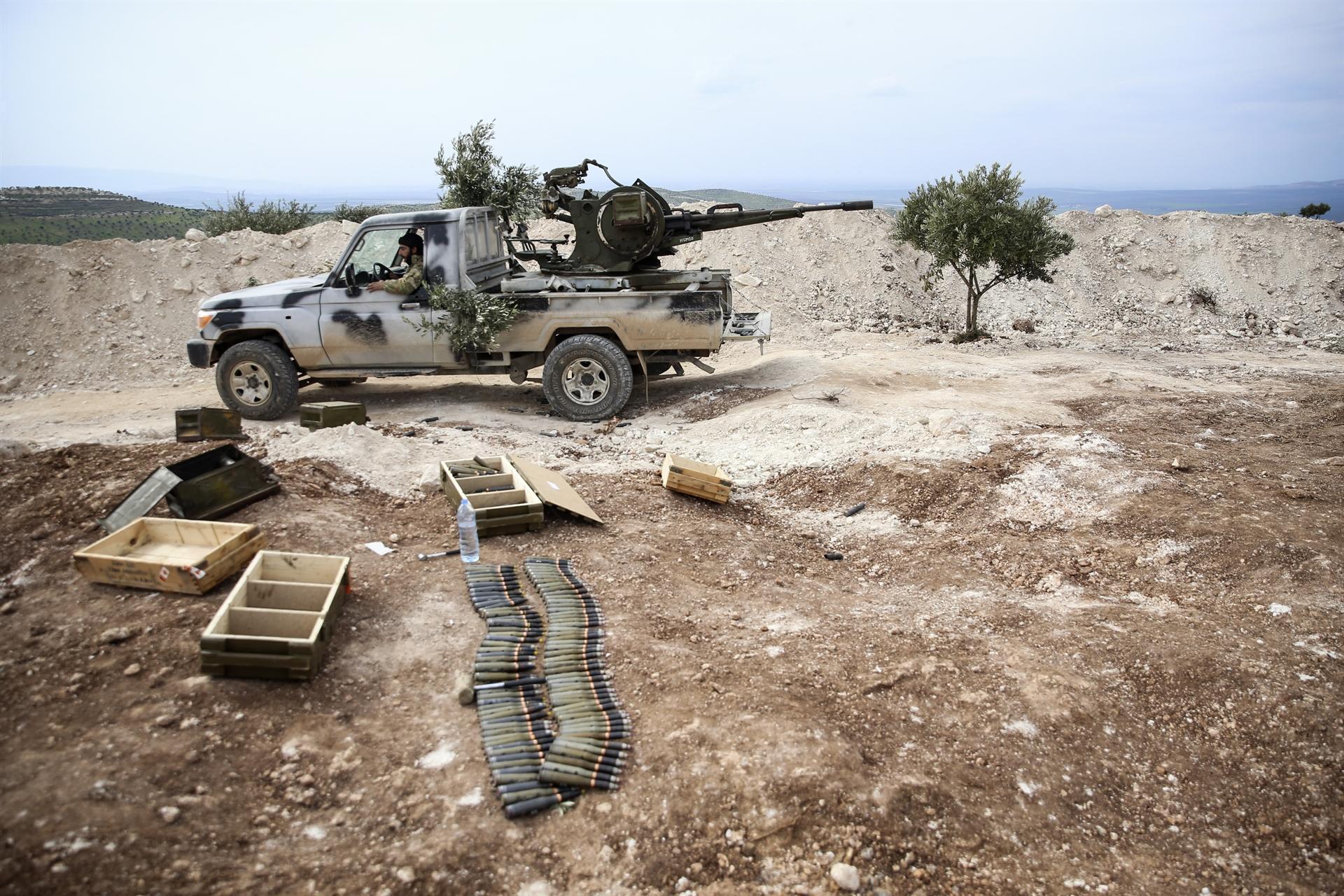US admits picking ‘bad alternative’ in Syria
BRUSSELS/ANKARA

The United States has indirectly admitted that its decision to collaborate with the People’s Protection Units (YPG) in the fight against the Islamic State of Iraq and the Levant (ISIL) in Syria was “not the best alternative,” as Ankara intensifies its pressure on Washington to cut ties with the group it considers terrorist and a threat to its national security.
U.S. Secretary of State Rex Tillerson arrived in Ankara on late Feb. 15 to hold talks with senior Turkish officials, including President Recep Tayyip Erdoğan and Foreign Minister Mevlüt Çavuşoğlu, a day after Secretary of Defense Jim Mattis met Defense Minister Nurettin Canikli in Brussels.
“I believe we are finding common ground and there are areas of uncommon ground, where sometimes war just gives you bad alternatives to choose from,” Mattis told reporters on the sidelines of a NATO meeting after his meeting with Canikli.
“But throughout this, the one that has marked our communication is absolute honesty and transparency with one another... We continue to collaborate on ways to ensure their legitimate concerns are addressed,” he added.
The bad alternative Mattis was referring to was the U.S. decision to ally with the YPG in the fight against ISIL, despite Turkey’s fierce opposition and warnings. Turkey acknowledges the YPG as the outlawed Kurdistan Workers’ Party’s (PKK) extension in Syria and has been fighting against the group in the Afrin district of Syria since Jan. 20.
Ignoring Ankara’s concerns, U.S. President Donald Trump in May 2017 signed a decree to allow the armament of the YPG, adding more fuel to ties already strained over Washington’s reluctance in cooperating for the extradition of Fethullah Gülen, the mastermind of the July 2016 coup attempt.
YPG to fight against the PKK?
With Turkey increasing its critical tone against the U.S. and implying that it won’t hesitate to hit YPG positions in the Manbij city of Syria where American troops are stationed, talks between the two capitals have intensified to ease the bilateral and regional tension.
Tillerson told reporters in Jordan that the two allies need to find a way to work together in the same direction, hinting Washington’s probable proposals to Ankara.
According to Canikli, Mattis suggested that the U.S. could dissociate the YPG from the PKK and could even let it fight against the PKK. “I told him that this is not a realistic approach. The YPG is part of the PKK and it’s impossible that they would fight each other,” the Turkish minister said.
Canikli made clear that Turkey’s demand from its ally is to “end its cooperation with the YPG and to stand with Turkey against its existentialist terror threats.”
“We also told him that YPG elements should be removed from the Syrian Democratic Forces [SDF],” he said.
“We have reiterated our expectation that the U.S. should work together with its ally, Turkey, against terror organizations and not with terror organizations,” he added.
‘Turkey’s operation does not undermine anti-ISIL fight’
During the meeting, the U.S. side expressed concerns that the Turkish army’s operation could undermine the anti-ISIL fight across Syria. Canikli brushed off U.S. concerns and claimed the YPG and ISIL cooperated in some areas in recent months, stressing that the YPG had secured armed ISIL members’ evacuation from Raqqa when the jihadist group was ousted from their de facto capital by the Kurdish militia in October 2017.
Mattis, however, underlined the need for a renewed focus on the fight against ISIL as the group was seeking resurgence in Syria and Iraq in 2018.
Ankara warns of misperception on anti-ISIL fight
Meanwhile, Deputy Prime Minister Bekir Bozdağ urged that Turkey may be subject to fresh accusations by the international community that its Afrin operation would help the resurrection of ISIL. “We can see the making of a new scenario in the coming days. We declare from now; this kind of plot cannot cast a shadow on Turkey’s rightful struggle,” he said on Feb. 15.
The objective of this scenario would be isolating and putting Turkey into a difficult situation by resurrecting ISIL in northern Syria, Bozdağ said.
No Turkish-American clash
The deputy prime minister also commented on the situation in Manbij where American troops are stationed alongside YPG militants. “American troops should not be there [during a potential operation into Manbij]. If they are there, of course, we will not ask anybody’s ID during the operation. Our fight is against terrorists. I don’t think Turkey and U.S. will be pitted against each other,” he stressed.
No heavy weapons delivered to YPG: Tillerson
Speaking to reporters in Beirut before his visit to Ankara, Tillerson said the U.S. had “never given heavy arms” to the YPG militia and there was, therefore, “nothing to take back.”
His statement came hours after Canikli said Mattis had told him the U.S. was working on a plan to take back heavy weapons delivered to the YPG.
















